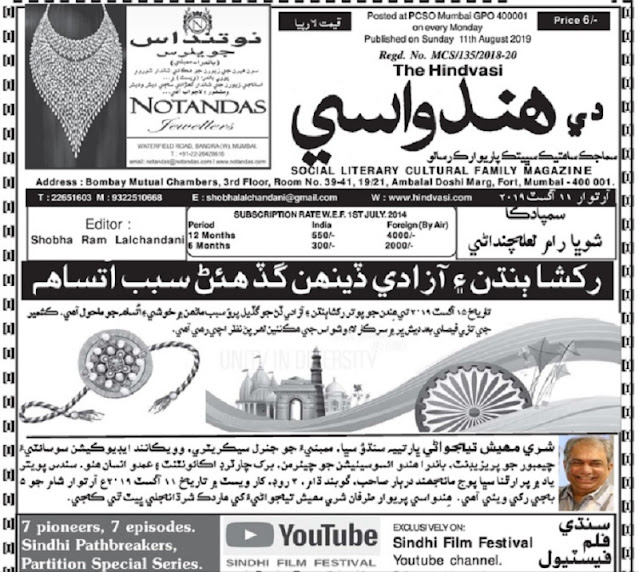Polish Author Olga Tokarczuk Wins Nobel Prize For Literature Of 2018-19
The Nobel Prize in Literature for 2018 is awarded to the Polish author Olga Tokarczuk “for a narrative imagination that with encyclopedic passion represents the crossing of boundaries as a form of life.”
The Nobel Prize in Literature for 2019 is awarded to the Austrian author Peter Handke “for an influential work that with linguistic ingenuity has explored the periphery and the specificity of human experience.”
Olga Tokarczuk was born 1962 in Sulechów in Poland, and today lives in Wrocław. Her parents were teachers and her father also functioned as school librarian. In the library she read pretty much everything she could get hold of and it was here that she developed her literary appetite. After studies in psychology at the University of Warsaw she made her debut as a fiction writer 1993 with ‘Podróz ludzi Księgi’ (‘The Journey of the Book-People’). Her real breakthrough came with her third novel ‘Prawiek i inne czasy’ 1996 (‘Primeval and Other Times’, 2010).
The Nobel Prize in Literature for 2019 is awarded to the Austrian author Peter Handke “for an influential work that with linguistic ingenuity has explored the periphery and the specificity of human experience.”
Olga Tokarczuk was born 1962 in Sulechów in Poland, and today lives in Wrocław. Her parents were teachers and her father also functioned as school librarian. In the library she read pretty much everything she could get hold of and it was here that she developed her literary appetite. After studies in psychology at the University of Warsaw she made her debut as a fiction writer 1993 with ‘Podróz ludzi Księgi’ (‘The Journey of the Book-People’). Her real breakthrough came with her third novel ‘Prawiek i inne czasy’ 1996 (‘Primeval and Other Times’, 2010).
The novel is an excellent example of new Polish literature after 1989, resisting moral judgement and unwilling to represent the conscience of the nation. Instead it shows a remarkable gift of imagination with a high degree of artistic sophistication.
The magnum opus of Tokarczuk so far is the impressive historical novel ‘Księgi Jakubowe’ 2014 (‘The Books of Jacob’). Once more the writer changes mode and genre, and has devoted several years of historical research in archives and libraries to make the work possible. Tokarczuk has in this work showed the supreme capacity of the novel to represent a case almost beyond human understanding.
Peter Handke was born 1942 in a village named Griffen, located in the region Kärnten in southern Austria. This was also the birthplace of his mother Maria, who belonged to the Slovenian minority. From 1961 he studied law at the University of Graz but broke off his studies a few years later when his debut novel ‘Die Hornissen’ (1966) was published. Together with the play ‘Publikumsbeschimpfung’ (‘Offending the Audience’, 1969), he certainly set his mark on the literary scene.
More than fifty years later, having produced a great number of works in different genres, he has established himself as one of the most influential writers in Europe after the Second World War. His bibliography contains novels, essays, note books, dramatic works and screenplays. His works are filled with a strong desire to discover and to make his discoveries come to live by finding new literary expressions for them.
copied form Noble Prize
The magnum opus of Tokarczuk so far is the impressive historical novel ‘Księgi Jakubowe’ 2014 (‘The Books of Jacob’). Once more the writer changes mode and genre, and has devoted several years of historical research in archives and libraries to make the work possible. Tokarczuk has in this work showed the supreme capacity of the novel to represent a case almost beyond human understanding.
Peter Handke was born 1942 in a village named Griffen, located in the region Kärnten in southern Austria. This was also the birthplace of his mother Maria, who belonged to the Slovenian minority. From 1961 he studied law at the University of Graz but broke off his studies a few years later when his debut novel ‘Die Hornissen’ (1966) was published. Together with the play ‘Publikumsbeschimpfung’ (‘Offending the Audience’, 1969), he certainly set his mark on the literary scene.
More than fifty years later, having produced a great number of works in different genres, he has established himself as one of the most influential writers in Europe after the Second World War. His bibliography contains novels, essays, note books, dramatic works and screenplays. His works are filled with a strong desire to discover and to make his discoveries come to live by finding new literary expressions for them.
copied form Noble Prize




Comments
Post a Comment